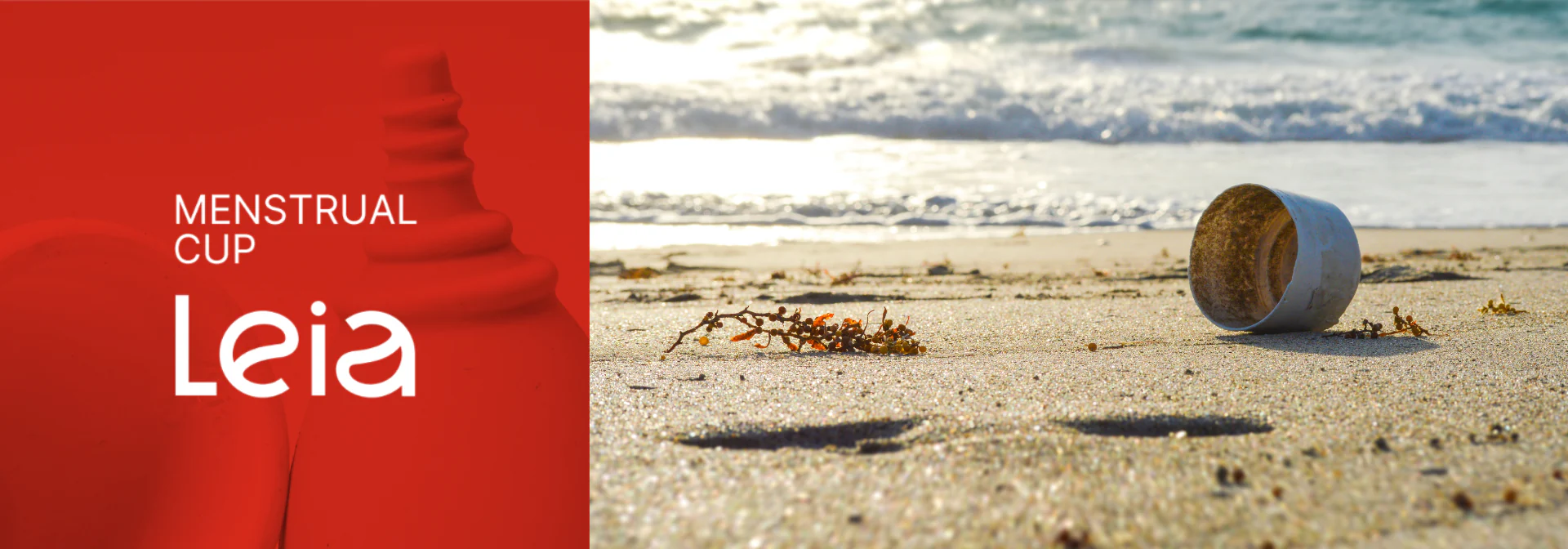Your cart is currently empty!
Menstrual Cups and the Environment: Reducing Plastic Waste

Plastic waste has become a significant environmental concern worldwide, with single-use menstrual products contributing to the problem. Menstrual cups offer a sustainable alternative that helps address the issue of plastic waste. In this article, we will explore how menstrual cups contribute to reducing plastic waste, benefiting the environment and promoting a more sustainable approach to menstrual care.
Reusability and Longevity
One of the key environmental advantages of menstrual cups is their reusability. Unlike disposable menstrual products that are used once and discarded, cups can be reused for several years with proper care. This extended lifespan significantly reduces the amount of plastic waste generated by menstrual care. By using a single cup instead of countless disposable products, individuals make a substantial contribution to reducing plastic waste.
Minimal Packaging
Menstrual cups often come with minimal packaging, which further reduces the environmental impact. Unlike disposable products that require extensive packaging, including plastic wrappers and cardboard boxes, cups are typically packaged in minimal, eco-friendly materials. This reduction in packaging waste contributes to a more sustainable and eco-conscious choice.
Elimination of Plastic Applicators and Wrappers
Disposable menstrual products, such as tampons and pads, often come with plastic applicators, wrappers, and adhesive strips that contribute to plastic waste. Menstrual cups eliminate the need for these plastic components altogether. Cups are inserted without the use of applicators, reducing plastic consumption and waste. Additionally, cups do not require individual plastic wrappers, as they can be stored and carried in reusable pouches or containers.
Decreased Environmental Footprint
Menstrual cups have a significantly lower environmental footprint compared to disposable menstrual products. The production and disposal of disposable products consume vast amounts of resources, including plastic, water, and energy. By choosing a menstrual cup, individuals minimize their contribution to these resource-intensive processes, promoting a more sustainable and eco-friendly approach to menstrual care.
Waste Reduction and Landfill Impact
Disposable menstrual products contribute to vast amounts of waste that end up in landfills. These products take years to decompose and can have long-term environmental consequences. Menstrual cups, being reusable, reduce the amount of waste generated from menstrual care. By opting for cups, individuals help reduce the burden on landfills and mitigate the environmental impact associated with disposable products.
Supporting Sustainable Practices
Using menstrual cups for menstrual care promotes broader sustainable practices and awareness. By consciously choosing a reusable option, individuals embrace a lifestyle that values sustainability and responsible consumption. This shift in mindset can extend beyond menstrual care, inspiring individuals to adopt eco-friendly practices in other areas of their lives, such as reducing single-use plastics, conserving energy, or supporting sustainable initiatives.
Menstrual cups offer a sustainable solution to the environmental problem of plastic waste generated by disposable menstrual products. With their reusability, minimal packaging, elimination of plastic applicators and wrappers, decreased environmental footprint, waste reduction, and support for sustainable practices, menstrual cups contribute to a more eco-conscious and environmentally friendly approach to menstrual care. By choosing menstrual cups, individuals make a positive impact on the environment, reducing plastic waste and embracing a more sustainable lifestyle.
Archive
Recent Posts
- Decoding Medical Silicone: From Breast Implants to Leia Menstrual Cups
- Understanding the Importance of Pelvic Floor Health
- Decoding Irregular Periods: Understanding Causes and Effective Management
- Navigating Intimacy: A Gynecologist’s Perspective on Sex During Menstruation
- Revitalize Your Pelvic Floor in 5 Minutes: Quick Exercises for Intimate Muscle Health
Tags
ActivePeriods AdventureFriendly Awarness Best menstrual cups Break Taboos CervixHealth ComfortableChoices Cups for teens Eco-Initiatives Empowered youth Empowerment Endometriosis Care Environmentally Environmentally Friendly ExerciseEnthusiasts FreeBleeding Friendly Leia Menstrual Cups FSA Green Choices GynecologistOpinion HassleFreePeriods HealthAndHygiene HealthAwareness HSA HSAvsFSA Hypoallergenic Care Leia Menstrual Cups leiathecup LowCervixComfort Low cervix menstrual cup usage Medical Expenses menstrualcupHSA Menstrual cups low cervix Menstrual Health Education pelvic floor muscles Period Care Personalized Peroid Care Supportive Community Sustainability Sustainable Impact TravelWithCups VaginalHealth WomenHealth WomensHealth WomenWellness
